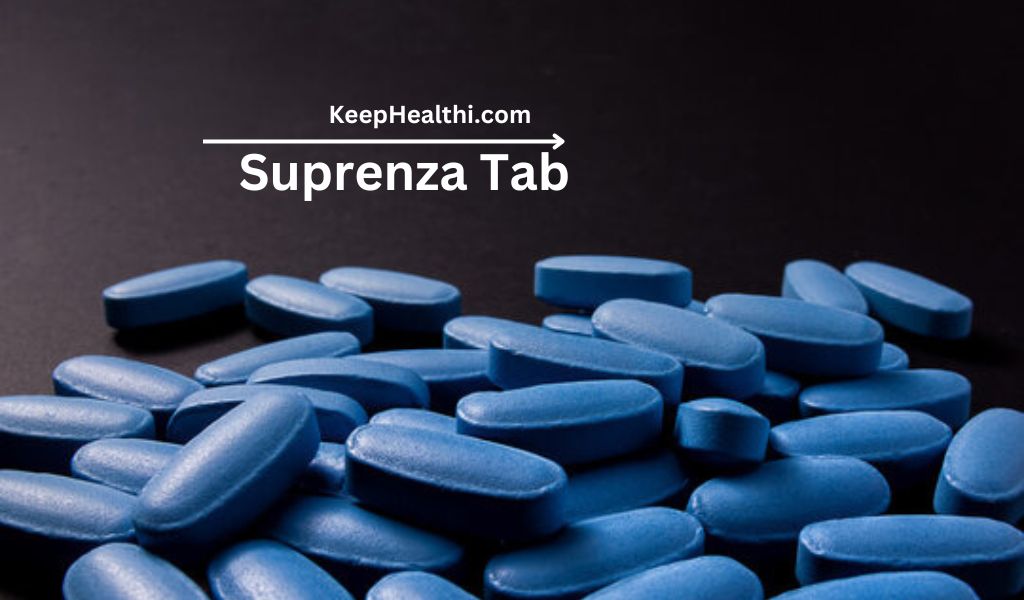Learn about Suprenza (phentermine), its uses, dosage, side effects, and important warnings for safe and effective weight loss management in 2024.
Suprenza, a brand name for phentermine, is a prescription medication primarily used for weight loss. It acts as an appetite suppressant, helping individuals adhere to a calorie-restricted diet. Here’s a comprehensive guide to Suprenza, including its uses, dosage, potential side effects, and important warnings.
Contents
What is Suprenza?
Suprenza is a central nervous system stimulant similar to an amphetamine. It works by decreasing appetite and increasing energy expenditure, which helps in weight management. Suprenza is typically prescribed for short-term use in conjunction with a doctor-approved exercise, behavior change, and reduced-calorie diet program to help you lose weight.
RELATED:
- Suprenza: Uses, Dosage, Side Effects & Warnings 2024
- Didrex: Uses, Dosage, Side Effects & Warnings 2024
- Desoxyn: Uses, Dosage, Side Effects & Warnings 2024
Uses of Suprenza
- Weight Loss: Suprenza is used as a short-term treatment for obesity in patients with a body mass index (BMI) of 30 or higher or 27 or higher with weight-related health conditions.
- Appetite Suppression: It helps reduce hunger, aiding in adherence to a calorie-restricted diet.
Dosage and Administration
The dosage of Suprenza varies depending on individual needs and medical conditions. Here is a general guideline:
- Typical Dosage: The usual starting dose is 15 mg, 30 mg, or 37.5 mg once daily, taken either before breakfast or 1-2 hours after breakfast. The dosage may be adjusted by the doctor based on the patient’s response to the treatment.
RELATED:
- Phentermine: Uses, Dosage, Side Effects & Warnings 2024
- Adipex: Uses, Dosage, Side Effects & Warnings 2024
- Lunesta: Uses, Dosage, Side Effects & Warnings 2024
Potential Side Effects
Suprenza can cause side effects, especially when first starting the medication. Common side effects include:
- Nervousness: Feelings of restlessness or nervousness.
- Insomnia: Difficulty sleeping, particularly if taken too late in the day.
- Dry Mouth: A common side effect, leading to discomfort.
- Increased Heart Rate: It may cause an increase in heart rate.
- Constipation: Changes in bowel movements like constipation.
- Headache: Mild to moderate headaches can occur.
Warnings and Precautions
Before taking Suprenza, inform your doctor if you have:
- Heart disease or high blood pressure
- Hyperthyroidism
- Glaucoma
- Severe anxiety or agitation
- History of substance abuse
Suprenza can interact with other medications, including antidepressants, other weight-loss drugs, and over-the-counter medications. Always inform your healthcare provider about all medications and supplements you are taking to avoid interactions.
RELATED:
- Tramadol: Uses, Dosage, Side Effects & Warnings 2024
- Vicodin: Uses, Dosage, Side Effects & Warnings 2024
- Percocet: Uses, Dosage, Side Effects & Warnings 2024
Safe Use and Storage
To use Suprenza safely:
- Follow Prescription: Take Suprenza exactly as prescribed by your doctor. Do not exceed the recommended dosage.
- Avoid Alcohol: Alcohol can increase the risk of side effects.
- Monitor Health: Regularly monitor your weight, blood pressure, and overall health, and discuss progress with your healthcare provider.
- Store Securely: Keep Suprenza in a secure place away from children and others who might misuse it.
When to Seek Medical Attention
If you experience severe side effects such as chest pain, shortness of breath, and swelling of the legs, or if you notice signs of an allergic reaction (e.g., rash, itching, swelling), seek medical attention immediately.
RELATED:
- Oxycodone: Uses, Dosage, Side Effects & Warnings 2024
- Methadose: Uses, Side Effects, and More 2024
- Hydrocodone: Uses, Side Effects, and More 2024
Conclusion
Suprenza (phentermine) can be an effective tool for short-term weight loss when used in combination with diet and exercise. However, it is important to use it responsibly under the guidance of a healthcare provider due to its potential for side effects and dependency. Always communicate openly with your doctor about your experience and any concerns.
Stay informed and prioritize your health and well-being.

